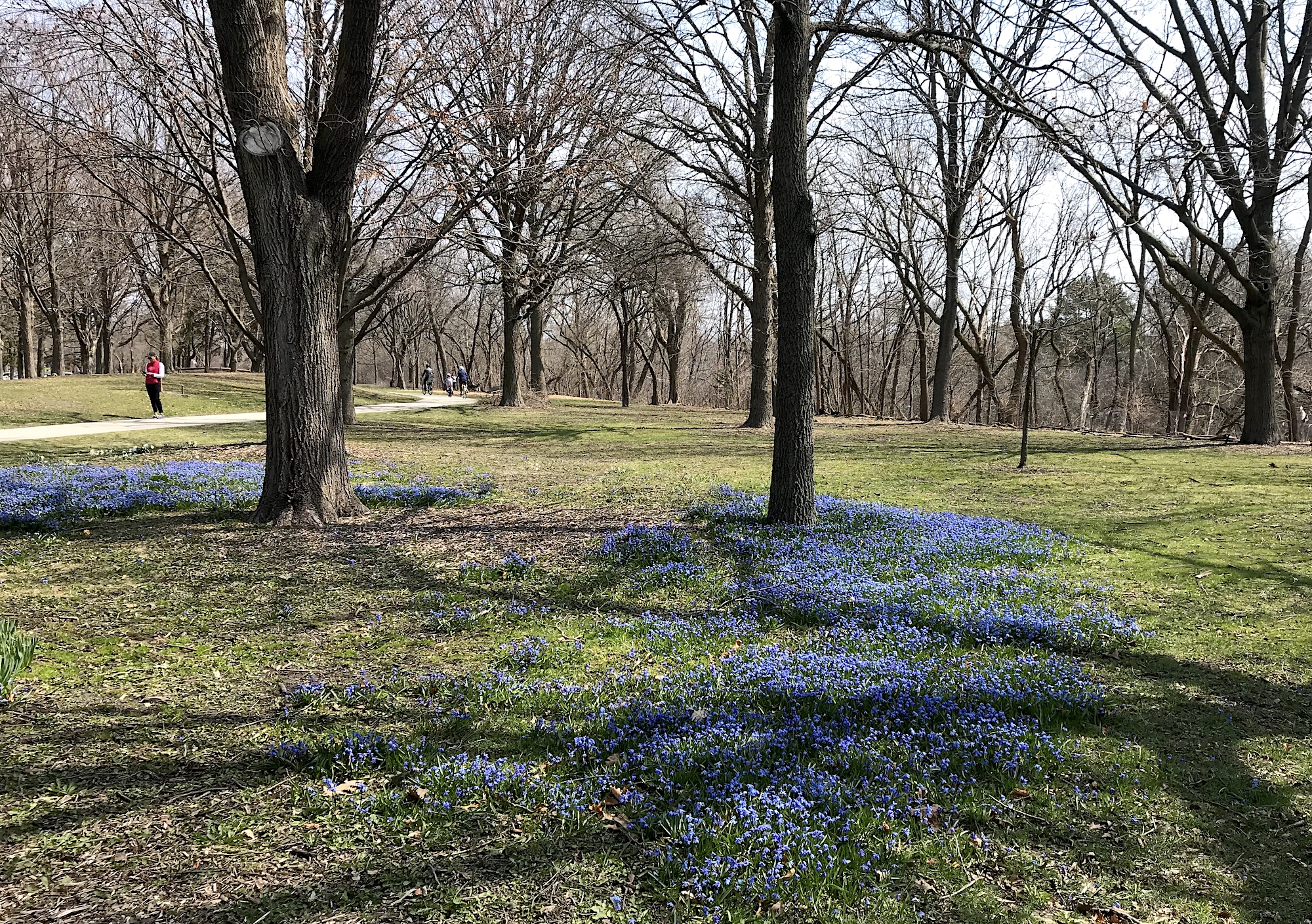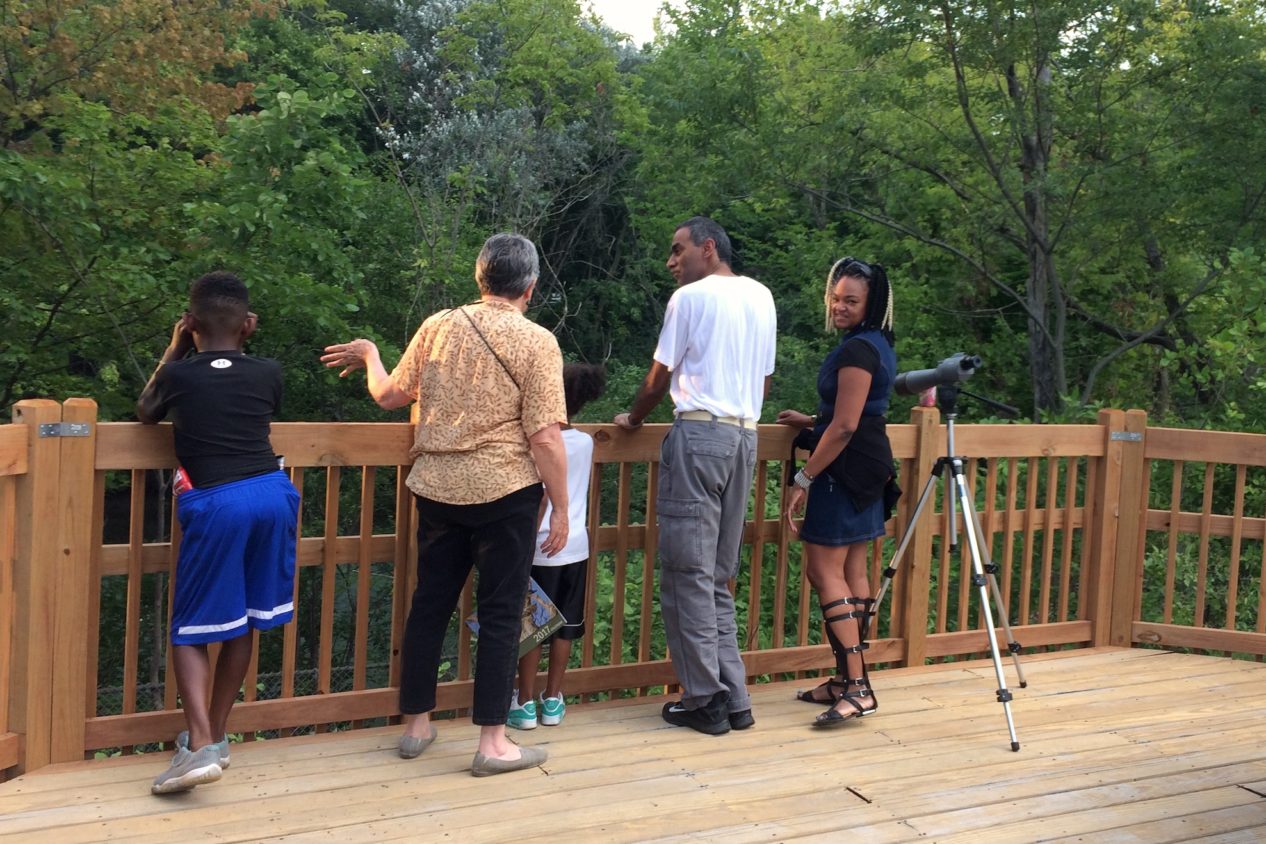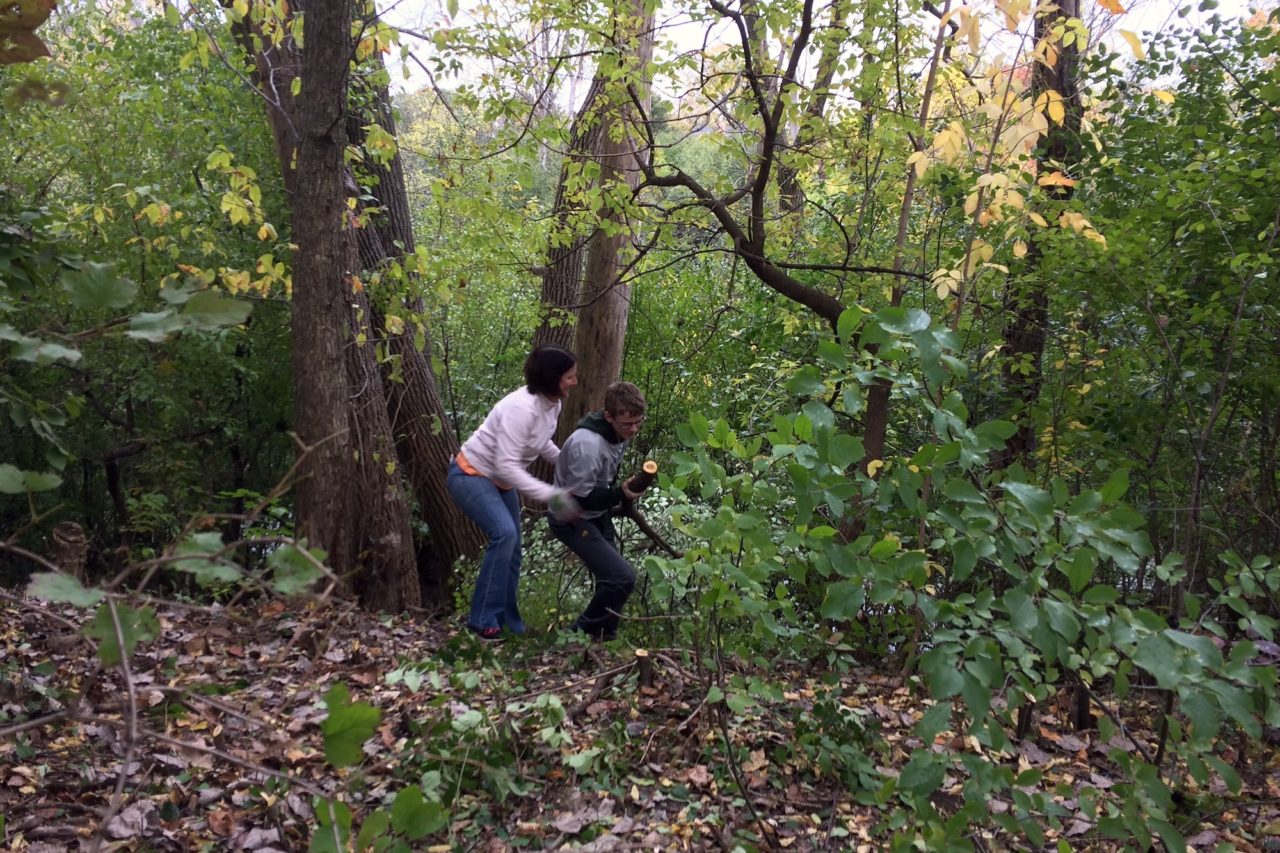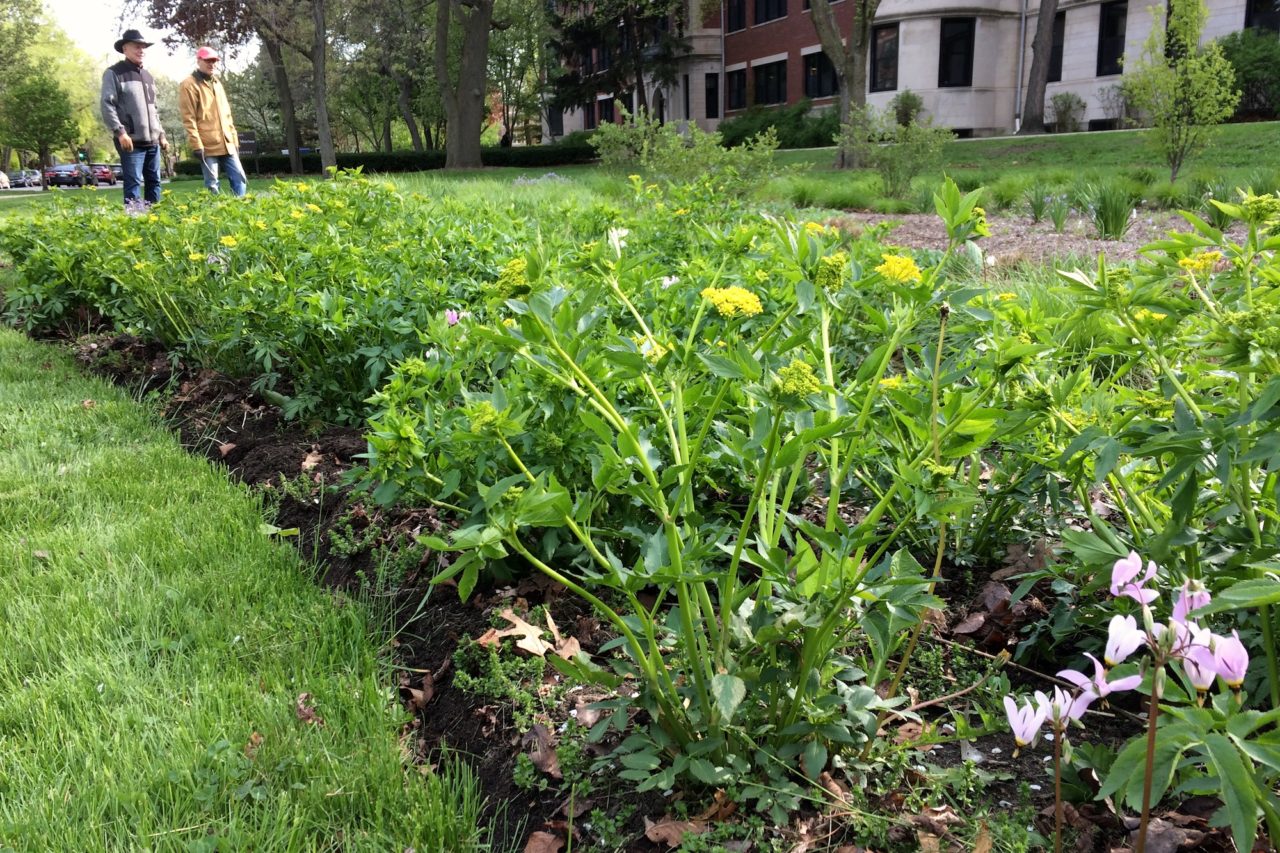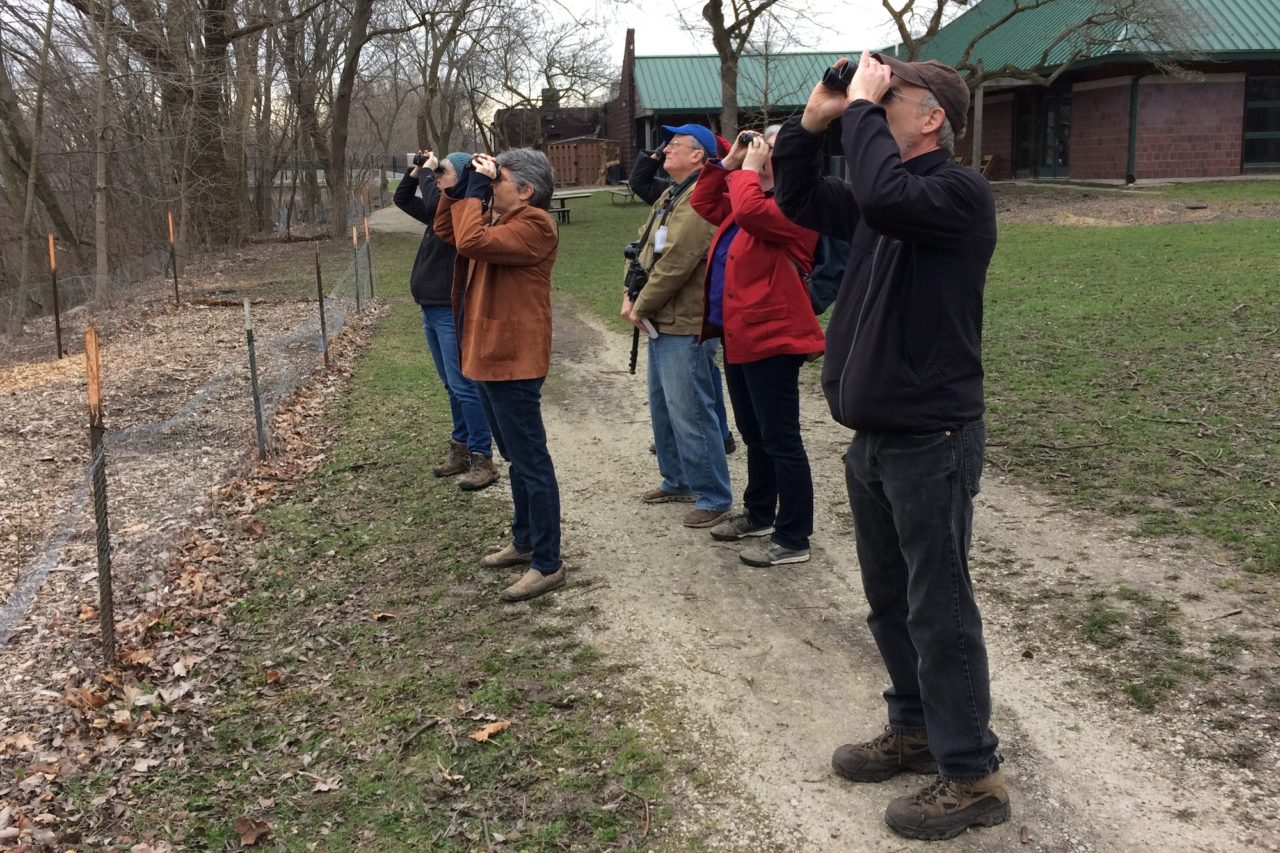Stress levels are high this spring. But while we have to keep a healthy distance, Evanston’s parks remain open, and people are seeking them out. It’s no wonder. There is increasing evidence that green spaces and natural areas like the Ladd Arboretum or Harbert Park have a wide range of benefits—including alleviating stress.
Evanstonian Terry Horton, a biological anthropologist on the Northwestern faculty, is one of the scientists who studies this phenomenon. In a recent study, for example, she had participants take 50-minute walks along Old Orchard Road in Skokie and along a forested trail not far away in Harms Woods. Taking a walk, her study confirmed, tended to lift the walker’s mood and lessen anxiety. Even walking on a sidewalk was better than not walking at all. But the effect was much greater from walking along a forested trail. (Terry Horton also volunteers with the North Shore Channel Habitat Project—below, clearing buckthorn in Harbert Park in 2017.)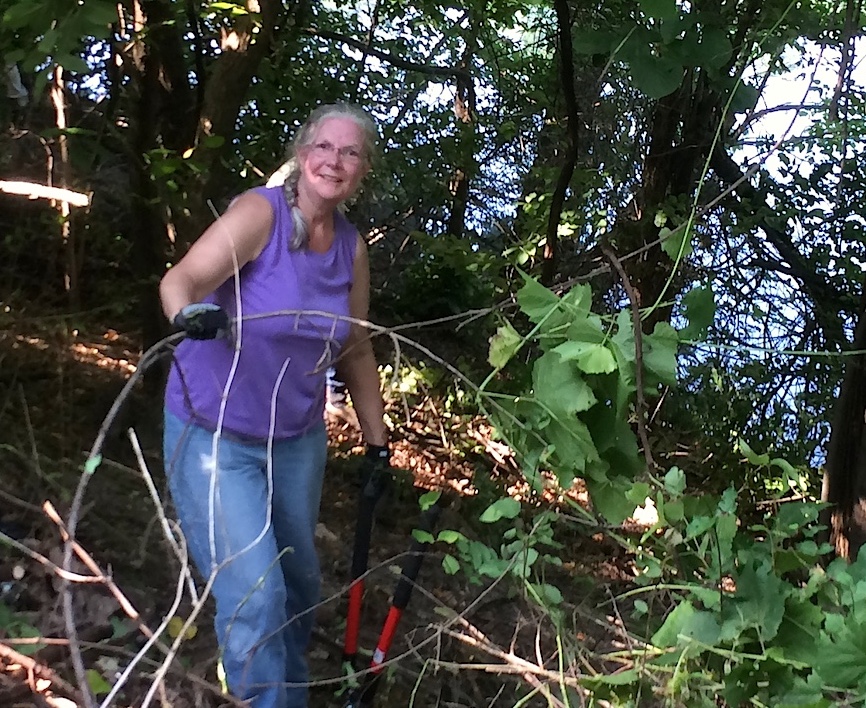
This is one reason it is so important that cities keep their parks open during the pandemic. An April 13 op-ed in The Washington Post by a group from Boston makes the case: “The science could not be clearer: The benefits of getting outside vastly outweigh the risk of getting infected in a park.”
“Study after study has shown that time spent in contact with nature has important and positive psychological, indeed neurological, effects on the mind — decreased rumination and negative thoughts in adults, reduced symptoms of ADD and ADHD in children, improved cognitive development. The amount of green space around a school is associated with decreased stress, better attention capacity and reduced mental fatigue and aggression. Those are the exact types of benefits kids need while coping with this crisis, especially with their access to green space missing with most schools shut down. And no one needs a scientific study to envision the benefits to a family’s well-being of just being together in a beautiful green space surrounded by nature.”
They recommend basic precautions we all know by now: maintain physical distance, wear a mask, don’t touch your face, and wash your hands when you get home.
And as municipal budgets get tighter, remember that trees, green spaces, and natural areas have to be supported and maintained in order to keep providing us with all of the benefits we need right now.
— Wendy Pollock
